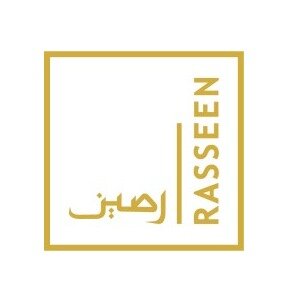Best Structured Finance Lawyers in Al Madinah
Share your needs with us, get contacted by law firms.
Free. Takes 2 min.
List of the best lawyers in Al Madinah, Saudi Arabia
About Structured Finance Law in Al Madinah, Saudi Arabia
Structured finance refers to sophisticated financial instruments designed to manage risk and raise capital. This field often involves asset-backed securities, sukuk (Islamic bonds), and other complex financing methods that go beyond traditional loans or equity financing. In Al Madinah, Saudi Arabia, structured finance must comply with Saudi Arabian laws and Sharia principles, which emphasize ethical, interest-free financial transactions. The city, known for its economic growth and focus on Islamic finance, follows stringent rules to ensure that all structured finance products and services align with both national regulations and Islamic law.
Why You May Need a Lawyer
Structured finance transactions are inherently complex and must adhere strictly to local regulations and Sharia principles. You may require a lawyer in various situations, such as:
- Structuring or participating in asset-backed securitizations or sukuk issuance
- Negotiating or drafting complex financial agreements
- Ensuring that your financial instruments comply with both Saudi Arabian law and Islamic finance guidelines
- Resolving disputes related to structured finance products or transactions
- Advising on investment structures for businesses operating or raising capital in Al Madinah
- Due diligence for mergers, acquisitions, or restructuring involving complex financing mechanisms
- Navigating regulatory approvals with the Saudi Central Bank (SAMA) or the Capital Market Authority (CMA)
- Assessing legal risks and liabilities in local and international structured finance deals
An experienced structured finance lawyer guides clients through regulatory processes, documentation, and compliance, reducing the risk of errors or disputes.
Local Laws Overview
Structured finance in Al Madinah is governed by a blend of national laws and Islamic finance standards. Key aspects include:
- Sharia Compliance: All financial products must avoid riba (interest) and gharar (uncertainty), and must not invest in businesses considered haram (forbidden).
- Capital Market Authority (CMA) Regulations: The CMA oversees the issuance of securities including sukuk and asset-backed products, setting out disclosure requirements and approval processes.
- Banking Control Law: This regulates the activities of banks and financial institutions, including those involved in structured finance deals.
- Contract Law: Saudi contract law, influenced by Sharia and codified regulations, ensures that financial contracts meet essential elements like mutual consent and lawful subject matter.
- Insolvency Law: The Bankruptcy Law provides procedures for restructuring or liquidation, affecting structured finance arrangements involving insolvent parties.
- Enforcement of Foreign Judgments: Saudi courts may enforce foreign judgments in structured finance disputes under certain conditions, but strict standards apply.
- Data Protection and Confidentiality: Financial institutions must maintain data confidentiality, important in structured deals involving sensitive financial information.
Legal advice ensures compliance with these laws and helps structure transactions that are both innovative and lawful.
Frequently Asked Questions
What does structured finance mean in Al Madinah?
Structured finance in Al Madinah refers to advanced financial transactions like asset-backed securities, sukuk, and other instruments structured to spread risk and raise capital. These must comply with Saudi laws and Sharia principles.
Are there specific laws governing sukuk issuance in Al Madinah?
Yes, sukuk issuance is regulated by the Saudi Capital Market Authority (CMA), which sets rules for issuance, trading, disclosure, and compliance with Sharia financial standards.
Can foreign investors participate in structured finance deals?
Foreign investors can participate, subject to regulatory approval and compliance with local and Sharia law. There may be restrictions or additional steps for foreign entities.
What role does Sharia law play in structured finance?
Sharia law prohibits interest and excessive uncertainty. All structured finance products must avoid these elements and adhere to ethical investment guidelines.
How are disputes in structured finance resolved?
Disputes are often resolved through local courts, but arbitration is also common, especially for complex or cross-border transactions. Saudi law and Islamic finance regulations will guide the outcome.
Do I need regulatory approval for creating structured finance products?
Yes, most structured finance products require approval from the Capital Market Authority, especially those involving securities or sukuk.
Is confidentiality assured in structured finance transactions?
Financial institutions in Saudi Arabia must maintain strict confidentiality, and data protection laws help safeguard sensitive information involved in structured finance.
What documents are required for a structured finance transaction?
Common documents include prospectuses, offering circulars, Sharia compliance certificates, contracts, and regulatory filings, depending on the transaction type.
Can companies restructure their debt using structured finance tools in Al Madinah?
Yes, companies may use structured finance tools such as sukuk or securitization to restructure debts, provided all legal and Sharia requirements are met.
How can I choose a lawyer for structured finance in Al Madinah?
Look for a lawyer or law firm with proven expertise in Saudi finance law, Islamic finance, and local regulatory compliance. Experience with CMA filings and structured products is essential.
Additional Resources
Several organizations and authorities can assist those seeking legal advice in structured finance:
- Saudi Capital Market Authority (CMA) - Regulates securities, including sukuk and asset-backed securities
- Saudi Central Bank (SAMA) - Oversees banking sector and financial stability
- Saudi Arabian General Investment Authority (SAGIA) - Assists with foreign investment in financial sectors
- Saudi Bar Association - Directs individuals to qualified financial lawyers
- Islamic Development Bank - Provides research and guidance on Islamic finance products
- Local law firms specializing in finance and Sharia law compliance
Consulting these resources can help you better understand the regulatory landscape and find the right legal support.
Next Steps
If you need legal assistance in structured finance in Al Madinah, start by gathering all relevant documents and details about your financial transaction or project. Research law firms or lawyers with expertise in Saudi structured finance and Islamic law. Schedule a consultation to discuss your needs, ensure they have a track record with local regulations and CMA processes, and clarify their fees and approach. Always verify their credentials through local regulatory bodies if possible. Taking these steps will help you make informed decisions and safeguard your interests in any structured finance matter.
Lawzana helps you find the best lawyers and law firms in Al Madinah through a curated and pre-screened list of qualified legal professionals. Our platform offers rankings and detailed profiles of attorneys and law firms, allowing you to compare based on practice areas, including Structured Finance, experience, and client feedback.
Each profile includes a description of the firm's areas of practice, client reviews, team members and partners, year of establishment, spoken languages, office locations, contact information, social media presence, and any published articles or resources. Most firms on our platform speak English and are experienced in both local and international legal matters.
Get a quote from top-rated law firms in Al Madinah, Saudi Arabia — quickly, securely, and without unnecessary hassle.
Disclaimer:
The information provided on this page is for general informational purposes only and does not constitute legal advice. While we strive to ensure the accuracy and relevance of the content, legal information may change over time, and interpretations of the law can vary. You should always consult with a qualified legal professional for advice specific to your situation.
We disclaim all liability for actions taken or not taken based on the content of this page. If you believe any information is incorrect or outdated, please contact us, and we will review and update it where appropriate.









